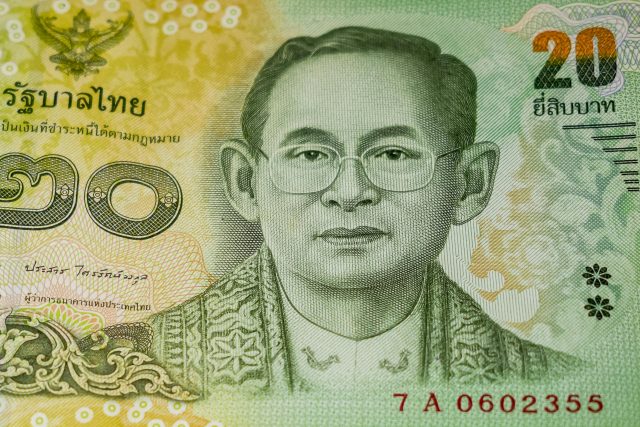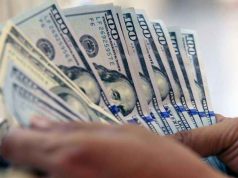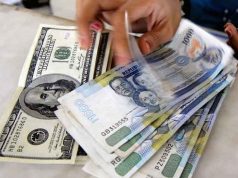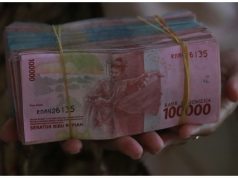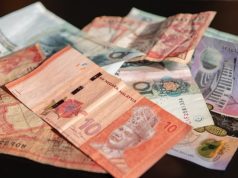Asian currencies slipped on Monday, led by a sharp decline in the Thai baht, after U.S. President-elect Donald Trump warned BRICS members against adopting a new currency, unsettling traders in emerging markets.
The Thai baht <THB=TH> lost as much as 0.7% of its value – its worst day since mid-November – and is the worst performer among Asian currencies for the day so far.
The main factor behind the Thai baht’s weakness is the drop in gold prices, coupled with the negative impact on Asian currencies from Trump’s warning to BRICS members, which has also affected the baht, according to Poon Panichpibool, a markets strategist at Krung Thai Bank.
Gold prices significantly influence the Thai baht as Thailand is a major consumer of the yellow metal in Asia. Weak global gold prices pressure the baht as export earnings in foreign currency decline.
The Malaysian ringgit <MYR=> and Singapore’s dollar <SGD=> also lost around half a percent each.
The U.S. dollar <=USD> was up 0.1% at about 106.19 against a basket of major currencies. Trump on Saturday demanded that BRICS member countries commit to not creating a new currency or supporting another currency that could replace the dollar or face 100% tariffs.
BRICS is a group of major emerging economies – that includes Brazil, Russia, India, China and South Africa and more recent members Egypt, Ethiopia, Iran, and the United Arab Emirates. Saudi Arabia is still considering its formal invitation.
“There is an ongoing push to reduce reliance on the USD and it remains to be seen if Trump can do anything to stop or delay this,” Maybank analysts noted.
Asian currencies and equities have been under pressure over the last month amid concerns about the impact of Trump’s return to the White House and his pledges of tariffs on key trading partners, including China.
Krung Thai Bank’s Panichpibool forecast Asian currenices to end 2024 on a higher note, but anticipated possible weakness if Trump implements tariffs and other policies, which he expects to occur in the second quarter of 2025.
Equities in emerging Asian economies were trending higher on the day, following record-high closing levels on Wall Street last week.
Stocks in Singapore <.STI> rose as much as nearly 1% to their highest levels since November 2007, driven by property and banking firms.
Stocks in Manila <.PSI> and Taipei <.TWII> climbed as much as 1.8% and 2.4%, while those in Malaysia <.KS11> and Thailand <.SETI> were largely flat.
HIGHLIGHTS:
** Indonesia’s November inflation eases to 1.55% y/y
** Bank of Korea to cut rates in Feb, Reuters snap poll
| Asian stocks and currencies as at 0647 GMT | ||||||
| COUNTRY | FX RIC | FX DAILY % | FX YTD % | INDEX | STOCKS DAILY % | STOCKS YTD % |
| Japan | <JPY=> | -0.47 | -6.25 | <.N225> | 0.71 | 15.60 |
| China | <CNY=CFXS> | -0.29 | -2.36 | <.SSEC> | 0.99 | 12.92 |
| India | <INR=IN> | -0.23 | -1.74 | <.NSEI> | -0.02 | 11.02 |
| Indonesia | <IDR=> | -0.38 | -3.18 | <.JKSE> | -0.19 | -2.37 |
| Malaysia | <MYR=> | -0.49 | +2.87 | <.KLSE> | 0.07 | 9.67 |
| Philippines | <PHP=> | -0.17 | -5.67 | <.PSI> | 1.72 | 4.31 |
| S.Korea | <KRW=KFTC> | -0.34 | -8.09 | <.KS11> | -0.06 | -7.56 |
| Singapore | <SGD=> | -0.46 | -1.92 | <.STI> | 0.32 | 15.77 |
| Taiwan | <TWD=TP> | -0.42 | -5.71 | <.TWII> | 2.13 | 26.80 |
| Thailand | <THB=TH> | -0.61 | -0.91 | <.SETI> | 0.12 | 0.94 |
—Reporting by Sherin Sunny in Bangalore; Editing by Kate Mayberry and Sherry Jacob-Phillips

